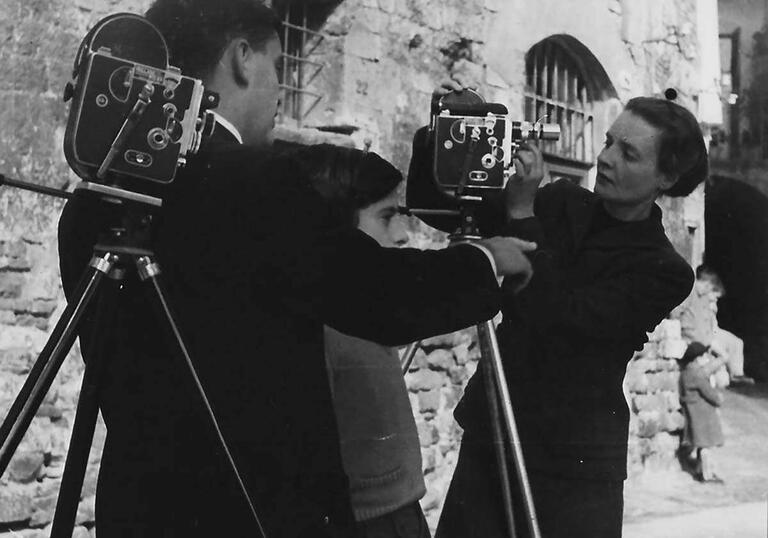
Booking fees
£1.50 booking fee per online/phone transaction.
No fee when tickets are booked in person.
Booking fees are per transaction and not per ticket. If your booking contains several events the highest booking fee will apply. The booking fee may be reduced on certain events. Members do not pay booking fees.
Film Programme
Garden Pieces (1998) - 12 min
Margaret Tait's final film, "Garden Pieces," is a beautiful and contemplative exploration of nature and time. Through poetic imagery and rich colors, Tait captures the serenity and subtle changes within a garden, creating a meditative experience that reflects on the cycles of life.
The Leaden Echo and the Golden Echo (1955) - 6 min 42 s
Based on the poem by Gerard Manley Hopkins, this film is a visual interpretation of the themes of beauty, decay, and renewal. Tait's use of rhythmic editing and evocative imagery brings a new dimension to Hopkins' words, blending sound and sight into a harmonious whole.
Colour Poems (1974) - 10 min 56 s
A series of vivid visual vignettes, "Colour Poems" showcases Tait's unique ability to find poetry in everyday scenes. The film's fragmented structure and vibrant palette reflect her experimental approach, creating a collage of moments that speak to the beauty of the ordinary.
Tailpiece (1976) - 9 min 4 s
"Tailpiece" is a reflective work that looks back on the themes and techniques of Tait's earlier films. It serves as a fitting epilogue to her body of work, summarizing her exploration of personal and observational cinema with a sense of quiet contemplation.
Aerial (1974) - 4 min 13 s
In "Aerial," Tait experiments with the interplay of light, shadow, and movement. This short film captures fleeting impressions of the natural world, using minimalism and abstraction to evoke a sense of the ethereal and the transient.
On The Mountain - 30 min
A more extended exploration of landscape and human presence, "On The Mountain" delves into the connection between people and their environment. Through a series of intimate and expansive shots, Tait weaves a narrative that is both personal and universal, reflecting on the enduring relationship between humans and the natural world.





